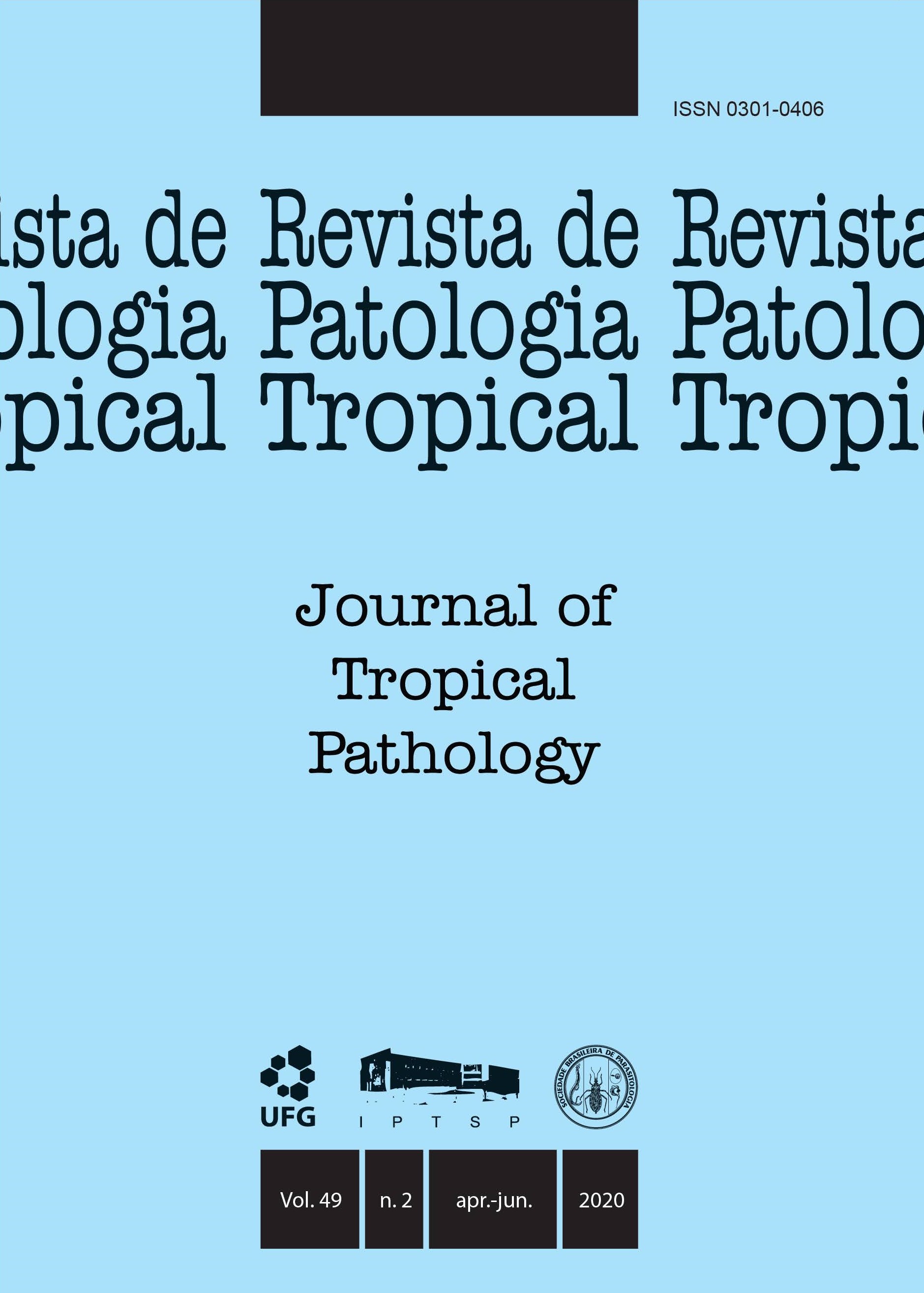DETECTION OF SALIVIRUS IN RAW SEWAGE SAMPLES IN RIO DE JANEIRO, BRAZIL
DOI:
https://doi.org/10.5216/rpt.v49i2.63619Resumo
Gastroenteric viruses are important pathogens related to cases of acute gastroenteritis, affecting millions of people worldwide with a major impact on children under five in developing countries. The introduction of metagenomic approach techniques in the 2000s has allowed the description of new viruses, among them Salivirus, which has been associated worldwide with cases of diarrhea. This study aimed to detect salivirus in raw sewage samples from a wastewater treatment plant (WWTP) collected between June 2013 and May 2014 in Rio de Janeiro, Brazil. Fifty-two samples collected weekly were tested by using a real-time quantitative PCR (qPCR). Salivirus genome was detected in 71.1% (37/52) of the samples, with viral concentration ranging from 7.56 x 104 to 7.20 x 106 genomic copies per liter. Higher viral loads were detected in the summer and fall of 2014, although these data were not sufficient to infer seasonality for this virus. The high prevalence of salivirus in sewage samples highlights the importance of viral research in wastewater to generate data on salivirus circulation, increasing understanding regarding its dissemination in the population.
KEY WORDS: Wastewater; viral detection; salivirus; Brazil; raw sewage; qPCR.
Downloads
Downloads
Publicado
Como Citar
Edição
Seção
Licença
The manuscript submission must be accompanied by a letter signed by all authors stating their full name and email address, confirming that the manuscript or part of it has not been published or is under consideration for publication elsewhere, and agreeing to transfer copyright in all media and formats for Journal of Tropical Pathology.

